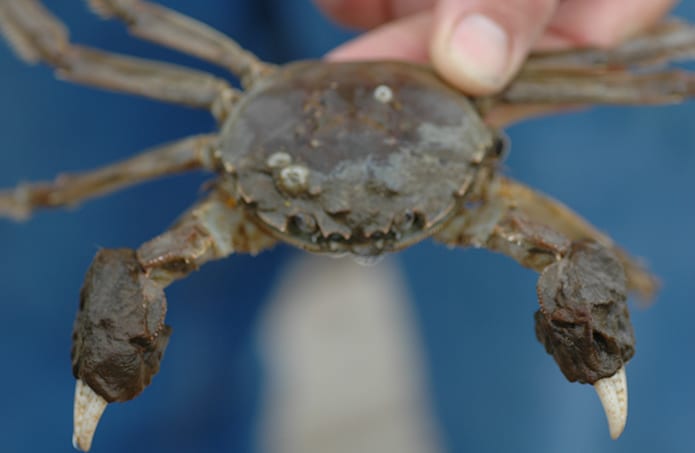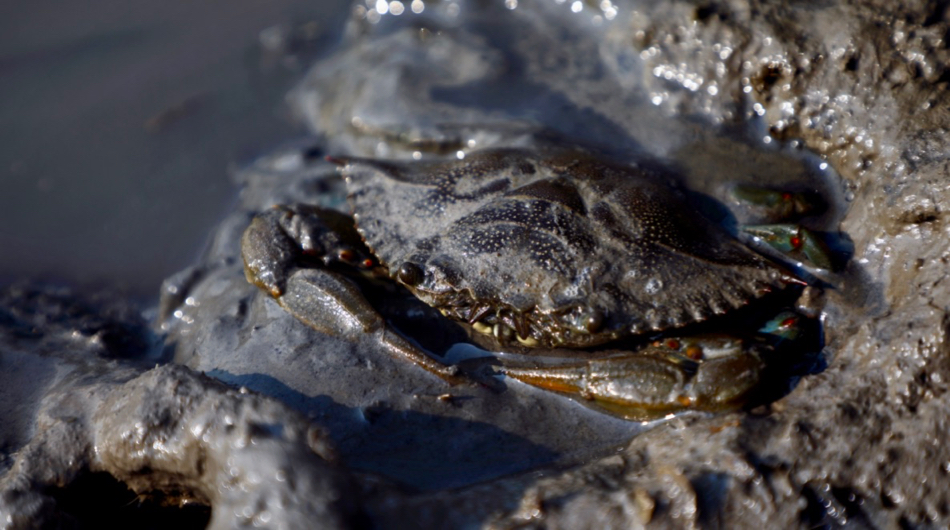Despite the best efforts of oyster farmers and aquaculture enthusiasts, the younger oyster beds of the Chesapeake Bay are being chipped away at, bit-by-bit. Maryland Natural Resources Police (NRP) patrol the Bay and its rivers on the lookout for oyster poachers.
“People come in and steal oysters in the middle of the night,” Horn Point Oyster Hatchery regional specialist Don Webster said. “It’s like a smash and grab in a jewelry store.”
Webster explained that poaching is a serious threat to the livelihood of Chesapeake Bay oyster farmers. While the size and scope of each poaching operation varies, their impact on the aquaculture community as well as the health of the Bay is significant.
The Maryland Department of Natural Resources Aquaculture Coordinating Council has put together a theft prevention work group with members from law enforcement and the aquaculture industry. The group focuses its efforts on researching methods to deter poachers as well as surveying the damage caused by oyster theft among farmers.
Workgroup member and Maryland Farm Bureau Government Relations Director, Colby Ferguson, said that NRP has a much easier time catching oyster poachers in the act during the warmer months of the spring and summer. However, at the height of oyster season, it becomes much more difficult to spot illegal activity.
“It’s not like you can go out there and see that someone’s torn down your fence and been on your property,” Ferguson said. “It’s harder to look down there in the water and see if anything’s missing.”
In addition, Ferguson said that telling the difference between a legal, wild oyster and an oyster from someone’s farm can be quite difficult for the police, making catching poachers in the act one of the only ways to stop them. Though, even if poachers are caught red-handed, prosecuting them can be challenging.
“In many cases and because it’s in a local court, the judges aren’t always as strict as they could be,” Ferguson said. “And so these guys get away with small fines and things like that. It really doesn’t deter them from continuing to do it.” Ferguson said that in some extreme cases, NRP has confiscated the boats and equipment of repeat offenders.
NRP Lt. Catherine Medellin said that the theft prevention workgroup is currently considering potential legal deterrents for poaching. She said the group has discussed the possibility of increasing fines and even attempting to make oyster theft a felony. “This will of course all have to go through legislation,” Medellin said.
“A lot of times, these oystermen don’t know they’ve been poached or stolen from until they go back out during oyster season and they don’t have any oysters left,” Medellin said. “In the theft work group, they were putting together a survey to ask the aquaculture farmers if they are even reporting this, because we’re not sure that we’re getting accurate reporting.”
Both Ferguson and Medellin stressed the importance of notifying authorities if you witness suspicious activity. If you or your neighbor has an outdoor aquaculture farm, take note of suspicious or unfamiliar boats on the property, particularly at night. The DNR have a 24-hour “Catch-A-Poacher” hotline at 1-800-635-6124.
-Charlie Youngmann




